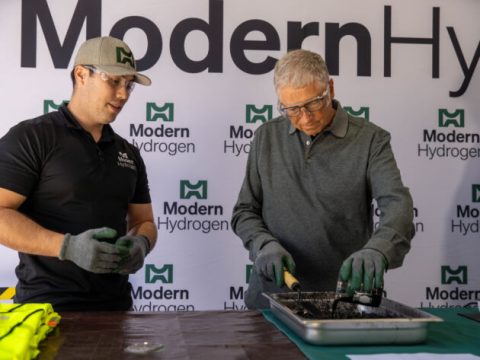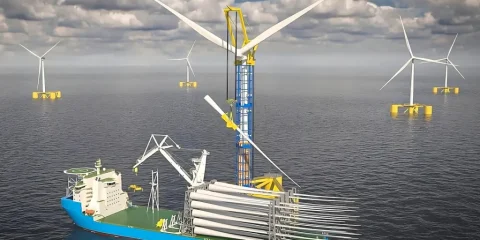Hyundai Motor Group has announced its comprehensive hydrogen strategy. The strategy is called Hydrogen Vision 2040. It aims to make hydrogen technology accessible across multiple sectors. The announcement took place during the Group’s Hydrogen Wave Forum. This marks a significant milestone in the company’s commitment to sustainable energy. The initiative focuses on three key principles. These are accessibility for everyone, applicability to everything, and availability everywhere.

Key Developments in Hydrogen Technology
Next-Generation Fuel Cell Systems
- Launch of new 100kW and 200kW fuel cell systems in 2023
- 50% reduction in production costs through advanced manufacturing
- 30% decrease in total package volume for flexible design
- 100% increase in power output for better performance
- Enhanced durability through improved cell technology
Commercial Vehicle Integration
Hyundai aims to lead the commercial vehicle sector with hydrogen technology. They will integrate fuel cell systems across their entire commercial lineup by 2028. This timeline shows Hyundai’s strong commitment to sustainable transportation. The integration will start with heavy-duty trucks. It will then expand to buses and delivery vehicles. Industrial equipment will follow in the integration process.
Cost Reduction Strategy

Hyundai plans to match FCEV prices with BEV prices by 2030. This will make hydrogen vehicles more accessible to consumers. The company is developing innovative manufacturing processes. They are building strategic partnerships throughout the supply chain. Research focuses on optimizing fuel cell stack design. Teams are working to reduce the use of precious metals. These efforts will help lower production costs significantly.
Expanded Applications of Hydrogen Technology
Hyundai’s vision goes beyond traditional vehicle applications. They are developing hydrogen solutions for homes and buildings. The technology will power industrial facilities. Residential systems will provide clean, reliable energy. These systems will reduce dependence on traditional power grids. Commercial buildings will benefit from sustainable power solutions. The environmental impact will be minimal.
Infrastructure Development
Infrastructure is crucial for Hyundai’s hydrogen strategy. They are working with energy companies to build refueling stations. Government partnerships help expand the hydrogen network. The plan includes both urban and highway locations. This ensures convenient access for all users. Hyundai is investing in green hydrogen production. This will create a sustainable supply chain.

Innovation in Hydrogen Mobility
The company showcases innovation through several concept vehicles:
- Autonomous Trailer Drone revolutionizes logistics with zero emissions
- Hydrogen sports car demonstrates high-performance capabilities
- Emergency vehicles show the reliability of hydrogen power
Research and Development Focus
Hyundai has established dedicated research centers for fuel cell innovation. Teams focus on advancing material science. System integration is a key research area. The facilities work on improving fuel cell efficiency. New catalyst materials are under development. Global research partnerships enhance technology development. Universities contribute to collaborative projects.
Leadership Perspective
Chairman Euisun Chung emphasizes the importance of collaboration. He sees technology and partnerships creating a sustainable future. The vision includes both environmental and social responsibility. Public-private partnerships will drive success. The chairman recognizes the challenges ahead. He remains committed to coordinated global efforts.
Global Impact and Sustainability Goals

The Vision 2040 aligns with global sustainability targets. It will help reduce carbon emissions across industries. New economic opportunities will emerge in the hydrogen sector. The initiative supports renewable energy transition. It contributes to carbon neutrality goals. The impact will benefit future generations.
Market Development Strategy
Regional markets will receive customized hydrogen solutions. Each solution addresses specific local needs. Market analysis guides implementation plans. Consumer education programs will increase awareness. Dealer networks will expand to support growth. Training programs will ensure proper system maintenance.
Future Technology Integration
Smart grid systems will incorporate hydrogen technology. AI will optimize energy distribution. Digital platforms will manage hydrogen infrastructure. Connected vehicles will enhance efficiency. Remote monitoring will ensure system reliability. Integration will happen gradually across sectors.
Keywords: hydrogen technology, fuel cell vehicles, Hyundai hydrogen strategy, sustainable transportation, hydrogen energy solutions, commercial hydrogen vehicles, FCEV development, hydrogen infrastructure, green energy innovation
Did You Know? Toyota Slashes Mirai Hydrogen Car Prices in California













